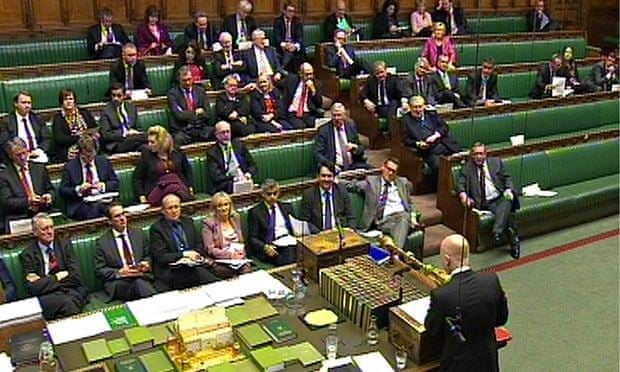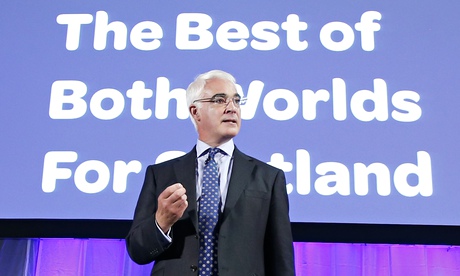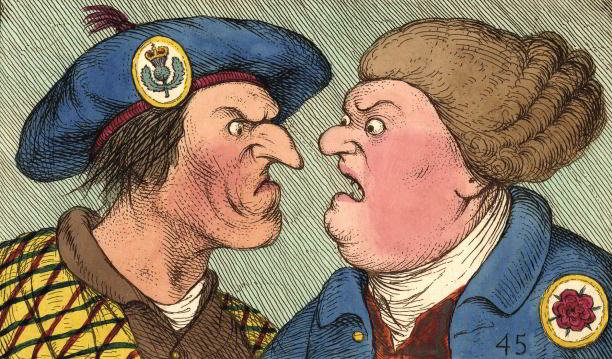Ian Bell, the Sunday Herald Columnist, wrote for his Scottish readers this article published on Sunday 24 August 2014
The Anglophobia that never was
IT all sounded ominous.
IT all sounded ominous.
“English backlash”; “Scots will pay a heavy price”; “English reject”: no matter the ending, the independence referendum would be tear-stained. Salty tears, too, familiar to those greetin’-faced Jocks.
In headline patois, the proposition was this: vote Yes and you’ll be sorry; vote No and it’s sorrow all the way. Affirm independence and you can forget a shared currency or a helping hand internationally. Reject independence and the bribes will stop. We’ll have you by the Barnett consequentials. Westminster over-representation no more. West Lothian Question no more.
GK Chesterton’s people of England, the ones who have “never spoken yet” in his poem The Secret People, appeared to suffer a change of heart. That they spoke through a sociological survey didn’t add much to the poetry. That they were talking through researchers in Edinburgh and Cardiff was a small contribution to the irony stockpile. The crack of backlash, predicted so long and so eagerly by some, was loud.
Well, yes and no (so to speak). The latest instalment of the Future of England Survey of 3695 adults, conducted by YouGov as part of research by the universities of Cardiff and Edinburgh, had a discord in the battle hymn. When they were done backlashing, the (surveyed) people of England expressed a wish – 59% to 19% – for the United Kingdom to continue. There was a nuance to their alleged exasperation.
It was as much as to say: stick around, and welcome, but we’re changing the terms of the lease. Stick around – for we like having you around – but once you’ve done trashing the place you’ll pay your whack, or lose the privileges we granted. No more hush money. No more hogging the parliamentary conversation. And if you must flounce off, don’t come running to us for a sub or a reference. But, Scotland, please don’t go.
Otherwise, the stats spoke. So 56% to 12% were reported as believing that levels of public spending in Scotland should be cut to levels – notional and in practical terms fictitious – called the UK average. So the claim on a post-independence currency union was rejected by 53% and supported by just 23%. So 62% said Scots MPs should be banned from voting on “England-only” laws.
In one question, the largest number (36%) thought the residual UK should have no truck with supporting Scotland’s membership of the EU and Nato. Elsewhere, fully 37% (against 21%) agreed that England and Scotland are drifting apart regardless. A big number – 53% against 10% – denied the claim promoted by Alex Salmond that it will be happy families after independence.
The survey found some English pragmatism to suit the Scottish majority taste. There were 42% (to 25%) prepared to say that Holyrood should control “most” of domestic taxation, given the removal of what’s called a subsidy, in the event of a No vote. There was a better than two-thirds showing that border controls would be a nonsense in the event of Yes. Still, it all made the “Scotland, don’t go” idea seem anomalous.
Personally, I’ve always thought it the easiest argument for independence. If you happen to be English, and if you happen to be fed up with what you call Anglophobia, and griping subsidy junkies, and the denial of English democracy, and appeasement of the northern neighbours, and Scots who refuse to see what’s glorious about Britain, put your back into Yes. It can all be solved in a few weeks.
That pat solution would not answer all of England’s questions, however. For one thing, the survey findings seem (to me) to have far less to do with a backlash, or with an animosity towards Scotland, than with Chesterton’s ordinary folk speaking up, finally, to say: “What about us?” Those ordinary people are less interested in withdrawing public spending or the chance of democracy from Scots than in asking why they can’t have the same. A very good question.
A truly representative parliament? An NHS still holding out against private-sector zombies? Free, mostly free, personal care for the elderly? So on and ever on. If you happen to be in Liverpool or Newcastle and contending with a government that, as usual, you didn’t vote for, what might you say? You might say Scots are subsidised while you struggle. You might notice one set of numbers and ignore another to show the first isn’t true. But you will find a reason to speak, finally.
The singer Billy Bragg and a few others have pursued this line for a while. They treat a Yes vote in Scotland as an opportunity, even an inducement, for England. They see profound imbalances and inequalities in that country, especially in the relationship between overbearing London and the rest, and they accept that it might not be Scotland’s job to make up the numbers should progressive England falter. It is an idea of solidarity by inspiration and emulation.
Pick through the survey stew and you find some sense. If Scotland can say it is not well-served by the nexus of Westminster, City and media, much of England can say the same.
Ken Livingstone used to like to remind Scots that some boroughs in his London were as poor as any districts in the islands. This was, and is, absolutely true. It was also beside the point. Part of the reason why England’s democracy needs to be broken apart on the wheel of devolution is to prove that you needn’t point a finger at others to get justice for yourself.
An English majority for a continuing UK suggests that animosities, where they exist, do not run deep. The desperate search for demented Scottish phobias has not been well-rewarded. The cheering-for-all during the Commonwealth Games turns out to have been more typical than the Daily Mail’s internet cybernat hunts. True hatred between Scotland and England is as hard to come by as truly irrational people.
The sole reason to worry comes from those behind the headline trench warfare. Did they want that English backlash so badly? Did they reason that Scots would react, for we have form, to old-fashioned provocation and show our colours as – what’s the formula? – ethnic separatists with weird notions about our neighbours? It didn’t work. It won’t work. It’s not true.
Just before the First World War, GK Chesterton published a novel containing a few poems. One of those has to do with St George. The writer called it The Englishman. I always think the last lines would suit those who sit in London offices and yearn for a resentful England.
But though he is jolly company
And very pleased to dine,
It isn’t safe to give him nuts
Unless you give him wine.
http://www.heraldscotland.com/comment/columnists/the-anglophobia-that-never-was.25112516
My reply was:-
Dear Mr Bell
Re: The Anglo-phobia that never was” – Sunday, 24th August
I enjoyed your article, but, with respect, the point about the opinion polls is somewhat undermining the No Campaign’s pitch as they demonstrate that the inducements to vote No which have been promised by Unionists in fact may be politically undeliverable.
In particular any promise to maintain the proportion of public spending currently spent in Scotland stands little chance of being honoured. So NO voters may well be voting for a £1,500 per annum cut in their living standards!
Do you think that thought will make a difference?
Yours sincerely
Robin Tilbrook
Chairman,
The English Democrats










